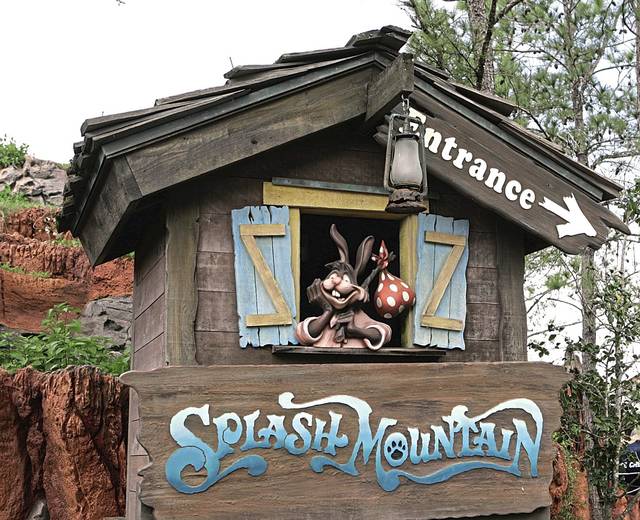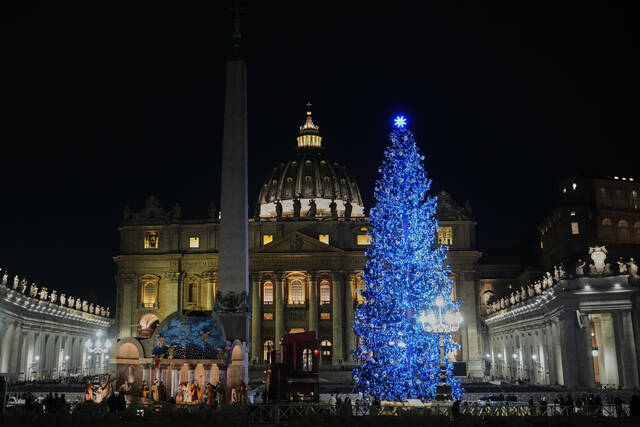The death of George Floyd continues to reverberate nationwide.
The reaction to his death, after a Minnesota police officer kneeled on his neck for almost eight minutes, has taken the form of continuing protests, introspection and a national — if heated — conversation about race.
Amid the fallout, some companies are taking steps to be more inclusive. On Thursday, it was Disney.
The entertainment giant is reimagining its Splash Mountain log flume ride at Disneyland in California and the Magic Kingdom in Florida, which has been a mainstay since 1989, according to CNN Business. The ride is based on the controversial 1946 film “Song of the South,” which has been criticized for its sanitized depiction of race relations.
Instead, the ride’s theme will be based on the 2009 film “The Princess and the Frog,” which featured Disney’s first Black princess. A Change.org petition seeking that alteration garnered more than 20,000 signatures.
We're thrilled to share Splash Mountain at @Disneyland & Walt Disney World will be completely reimagined with a new story inspired by an all-time favorite @DisneyAnimation film, “The Princess and The Frog.” Learn about what Imagineers have in development.
— Walt Disney World (@WaltDisneyWorld) June 25, 2020
Disney calls the change “inclusive — one that all of our guests can connect with and be inspired by — and it speaks to the diversity of the millions of people who visit our parks each year.”
The company says it has been working on the new ride since last year and that visitors will “join Princess Tiana and Louis on a musical adventure — featuring some of the powerful music from the film — as they prepare for their first-ever Mardi Gras performance.”
No date was given for the change, but “conceptual design work is well under way.”
Disney has kept the controversial “Song of the South” locked in its vault for decades. It has never been released on Blu-ray or DVD.
In 2010, then-Disney CEO Robert Iger called it “antiquated” and “fairly offensive.”
According to an analysis by ScreenCrush, the film tells the story of a boy, Johnny, who moves from Atlanta to live on his grandmother’s plantation, learning life lessons from James Baskett’s Uncle Remus character through stories about Br’er Rabbit, Br’er Fox and Br’er Bear. It includes the Disney staple “Zip-a-Dee-Doo-Dah,” which won an Oscar for Best Original Song.
Though the film’s Black characters are “treated warmly,” particularly Uncle Remus, writes Matt Singer of ScreenCrush, the problem lies mostly in what’s not discussed.
“Most Disney movies are set in an ill-defined and idealized past, and that’s fine when you’re making a movie about a princess who lives in a magic kingdom,” Singer writes. “When you’re making something about 1800s Georgia? It’s more of an issue.
“By stripping out any concrete details of time and place, Disney essentially turned the plantation system into a ludicrous utopia where Blacks and whites live in harmony — a harmony where the only thing that’s clear is that the Blacks are inferior and servile to the whites, but are content to work the fields anyway.”
Singer points out thematic issues, as well, alongside an impressive fusion of live action and animation and compelling songs.
“It’s very possible that Disney had good intentions,” Singer writes, “and still wound up with a very questionable movie.”
At the time, New York Times film critic Bosley Crowther took issue with the film, ScreenCrush notes.
“No matter how much one argues that it’s all childish fiction,” Crowther wrote, “the master-and-slave relation is so lovingly regarded … with the (Black people) bowing and scraping and singing spirituals in the night, that one might almost imagine that you figure Abe Lincoln made a mistake. Put down that mint julep, Mr. Disney!”








